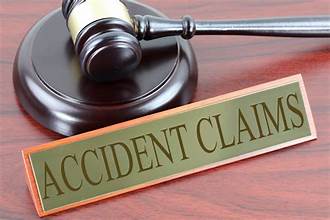
Pursuing Accident Claims in Kenya
1. Seek Medical Attention and Document Injuries
The first step in any accident claim is to seek immediate medical attention, even if you don’t feel seriously injured. Medical records are crucial for documenting the extent of your injuries and will serve as key evidence in your claim.
- Ensure that you get medical reports from the hospital or clinic.
- Keep receipts for any medical expenses incurred, including treatments, surgeries, or prescriptions.
- If the injuries are severe, the doctor may provide an assessment of the long-term impact on your life.
2. Report the Accident to Authorities
Whether it's a road traffic accident, a workplace injury, or another type of accident, you must report the incident to the relevant authorities.
- Motor Vehicle Accident: In the case of a road accident, report the accident to the police and obtain an official police abstract. The police will investigate the incident and prepare a report that will be helpful when making an insurance claim or pursuing legal action.
- Workplace Accidents: If the accident occurred in the workplace, report the incident to your employer immediately. The employer is required by law to report such incidents to the National Council for Occupational Safety and Health (NACOSH).
The police or relevant authority will document the event and produce a report that serves as critical evidence when making a claim.
3. Gather Evidence
Evidence plays a crucial role in supporting your accident claim. Be sure to gather as much relevant evidence as possible. This might include:
- Photographs or videos: If possible, take pictures of the accident scene, vehicles involved, and any visible injuries.
- Witness Statements: Collect contact details from any witnesses to the accident who can provide statements supporting your claim.
- Police Report: As mentioned earlier, a police abstract or report is vital in cases of road accidents, and in some cases, it may be required for insurance purposes.
- Medical Records: Keep track of all medical bills, doctor visits, treatments, and receipts for any expenses related to your injuries.
This evidence will help substantiate your claim and improve the likelihood of receiving compensation.
4. Notify Your Insurance Company
If the accident involved a vehicle or a situation covered by insurance (such as a workplace injury with insurance), inform your insurance company immediately. In Kenya, most motor vehicle accidents are covered under third-party insurance, which compensates victims of accidents caused by insured drivers.
- The insurance company will typically initiate an investigation and will require documentation such as the police abstract, medical records, and any evidence you have gathered.
- In the case of a workplace accident, an employer may also be required to notify the insurance company, depending on the type of insurance coverage in place for employees.
5. Assess Liability and Fault
For an accident claim to succeed, fault or liability must be established. In Kenya, this can be complicated, particularly in cases of road traffic accidents. You may need to prove that the other party was responsible for the accident due to negligence, recklessness, or breach of safety protocols.
- Motor Vehicle Accidents: In traffic cases, determining fault involves analyzing the police report, eyewitness statements, and evidence. Fault may be determined by whether the other driver violated traffic laws, such as speeding or failing to yield.
- Workplace Accidents: In cases involving workplace accidents, the employer may be liable if negligence (such as failure to provide safety equipment or maintain a safe work environment) contributed to the incident.
A lawyer specializing in accident claims can help establish liability by gathering the necessary evidence and working with experts, such as accident investigators or medical professionals, to strengthen your case.
6. File a Claim
Once the facts are clear, and the evidence is gathered, you can initiate a formal claim for compensation. In Kenya, there are two common ways to pursue an accident claim:
- Insurance Claim: If the accident is covered by an insurance policy (such as motor vehicle insurance or work-related injury insurance), the next step is to file a claim with the insurance company. Insurance companies typically pay compensation for medical costs, property damage, loss of income, and other related expenses. However, they may attempt to settle for less than you deserve, so it's important to ensure the claim is accurately valued.
- Court Claim: If the insurance company denies your claim or offers insufficient compensation, you may need to file a civil lawsuit against the liable party. In this case, a lawyer will file a case in court seeking compensation for your injuries, medical expenses, pain, and suffering.
7. Seek Legal Representation
Pursuing an accident claim can be complicated, especially when dealing with insurance companies or in cases of disputed liability. Engaging a lawyer experienced in personal injury or accident claims is highly advisable. A qualified lawyer can help you:
- Ensure all legal documents are filed correctly.
- Negotiate with insurance companies on your behalf.
- Represent you in court if the claim goes to litigation.
- Ensure you receive fair compensation for damages, including medical bills, lost income, pain and suffering, and other associated costs.
8. Compensation and Settlement
Once liability is established and the claim process is complete, the final step is receiving compensation. In Kenya, compensation amounts depend on the severity of the injuries, the impact on your life, and the costs incurred due to the accident.
- Insurance Settlements: Insurance companies may offer settlements, which can be negotiated with the assistance of your lawyer to ensure you receive a fair amount.
- Court Awards: If the matter goes to court and you win your case, the court may order the responsible party to pay compensation. The amount of compensation is determined based on various factors, including medical expenses, loss of earnings, and the degree of pain and suffering.
9. Final Considerations
- Time Limit for Filing Claims: In Kenya, personal injury claims, including accident claims, must be filed within a three-year period from the date of the accident (as per the Limitation of Actions Act). Failing to do so can result in your claim being barred by the statute of limitations.
- Out-of-Court Settlement: In some cases, parties may reach an out-of-court settlement, where the liable party agrees to compensate you without going to trial. While this can speed up the process, it’s important to ensure the offer is fair.
Conclusion
Pursuing an accident claim legally in Kenya requires a thorough understanding of the law, gathering proper evidence, and often, expert legal representation. By following the right steps, you can ensure that you are compensated for your injuries or damages, whether through insurance or through the court system. Always consult with an experienced lawyer to help navigate the complexities of accident claims and to maximize the chances of a successful outcome.Contact us for a detailed consultation on the options available to you to pursue your claim for compensation.




